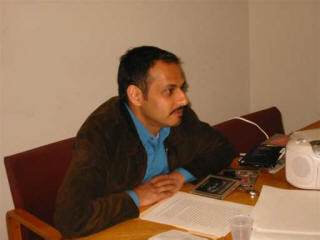Professor Bayoumi’s talk will begin with an overview of Islam, from its beginnings in seventh century Arabia through its rise into Asia and Africa. He will detail several important concepts to Islamic thought, including the five pillars of Islam, the idea of “tawheed” or the one-ness of God, and the notion of “taqwa” or God-consciousness.
The lecture will then trace the rise of Islam in the United States, from its beginnings in the Atlantic slave trade through the early history of Asian immigrants in the twentieth century to the rise of Malcolm X in the 1950s and 1960s. Opposing the dominant narrative of Islam among African American communities as a stance of rejection and exclusion (as seen through the history and thought of the Nation of Islam), this talk instead will seek to build a counter narrative of universal belonging that was developed with historic connections between African American and Asian American Muslims.
Although later eclipsed by the media success of the Nation of Islam, this community of Muslims, which was largely a multi-racial and pan-ethnic movement, was the major Muslim community in the United States roughly between the years of 1920 and 1950.
Many of these Muslims were at the forefront of the be-bop movement of jazz in the 1950s, and through an examination of this cultural connection the lecture proceeded to argue that conversion to Islam was particularly attractive for African Americans since it offered participation in a religion of both universal belonging and particular racial pride (in a kind of Afro-Asiatic identity). Thus, Islam, as shared between Asian Americans and African Americans, became a way of apostatizing against the defining and demeaning racial logics of the United States and opened a system of belief that viewed the racial and national divisions of the world as contemptibly parochial.
Read more


